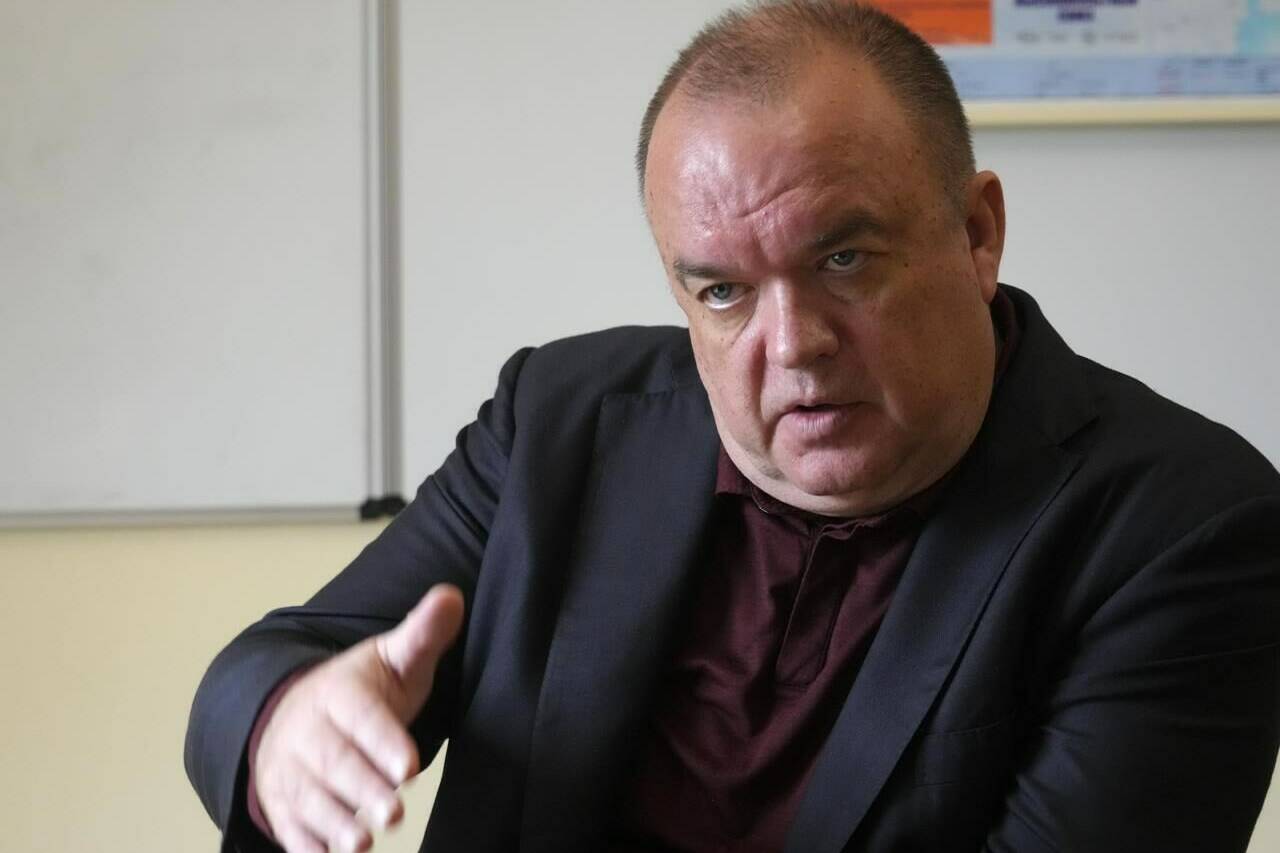Ukraine is considering restarting Europe’s largest nuclear plant, which is occupied by Russian troops, to ensure its safety just weeks after fears of a radiation disaster prompted its shutdown, the facility operator’s head said Tuesday.
The Zaporizhzhia nuclear power plant has emerged as one of the most worrying flashpoints in Russia’s occupation of Ukraine. It has been damaged in fighting, prompting international alarm, and its head was detained by occupying forces through the weekend before his release Monday.
Ukrainian state nuclear company Energoatom shut down the last of the plant’s six reactors on Sept. 11 because Russian military activity had cut reliable external power supplies for cooling and other safety systems, threatening a potentially catastrophic meltdown.
But now the company faces a different problem.
In an interview with The Associated Press, Energoatom President Petro Kotin said Energoatom could restart two of the reactors in a matter of days to protect safety installations as winter approaches and temperatures drop.
“If you have low temperature, you will just freeze everything inside. The safety equipment will be damaged,” he said in his office at the company’s Kyiv headquarters. “So you need heating and the only heating is going to come from the working reactor.”
Russian troops occupy the plant and the surrounding area, including the nearby town of Energodar where thousands of Ukrainian workers continue to maintain the facility. The plant is also the only source of heat for the town, Kotin said.
Energoatom could make a decision as early as Wednesday to restart the reactors.
“We at the moment are evaluating all the risks. And this depends on the weather. And actually, we don’t have much time to do that,” Kotin said.
The problem facing operators now is that the various systems that keep the reactors safe and operational must not get so cold that they stop working. Under current conditions, with Russian troops still jeopardizing normal operation, power for those systems has to come from the plant itself.
“In the freezing conditions, you lose everything. And after that, the consequences would be very, very dangerous,” Kotin said.
The plant’s director general, Ihor Murashov, was seized and blindfolded by Russian forces on his way home from work on Friday. Murashov reported that he did not face beatings or torture, but he was forced to make false statements on camera before his release, Kotin said.
He was eventually let go at a checkpoint at the edge of territory Russia controls and had to walk about 15 kilometers (nine miles) across no-man’s land to Ukrainian-held areas, according to Kotin.
The power plant sits within one of four regions that Russian President Vladimir Putin has moved to annex; the nearby city of Zaporizhzhia itself remains in Ukrainian hands.
At the time of the forced shutdown last month, Ukrainian officials had warned it was only a stopgap measure and, as such, unreliable.
Russian forces occupied the nuclear power station, which ranks among the world’s biggest, early in the war. Both sides blame each other for shelling that has damaged power lines connecting it to the grid.
Kotin on Tuesday renewed his call for the establishment of a “demilitarized zone” around the plant, where two experts from the International Atomic Energy Agency, the U.N. nuclear watchdog, are currently based.
—Adam Schreck And Hanna Arhirova, The Associated Press
RELATED: Ukraine warns of ‘nuclear terrorism’ after strike near plant
RELATED: Russians take Ukraine nuclear plant; no radiation after fire

